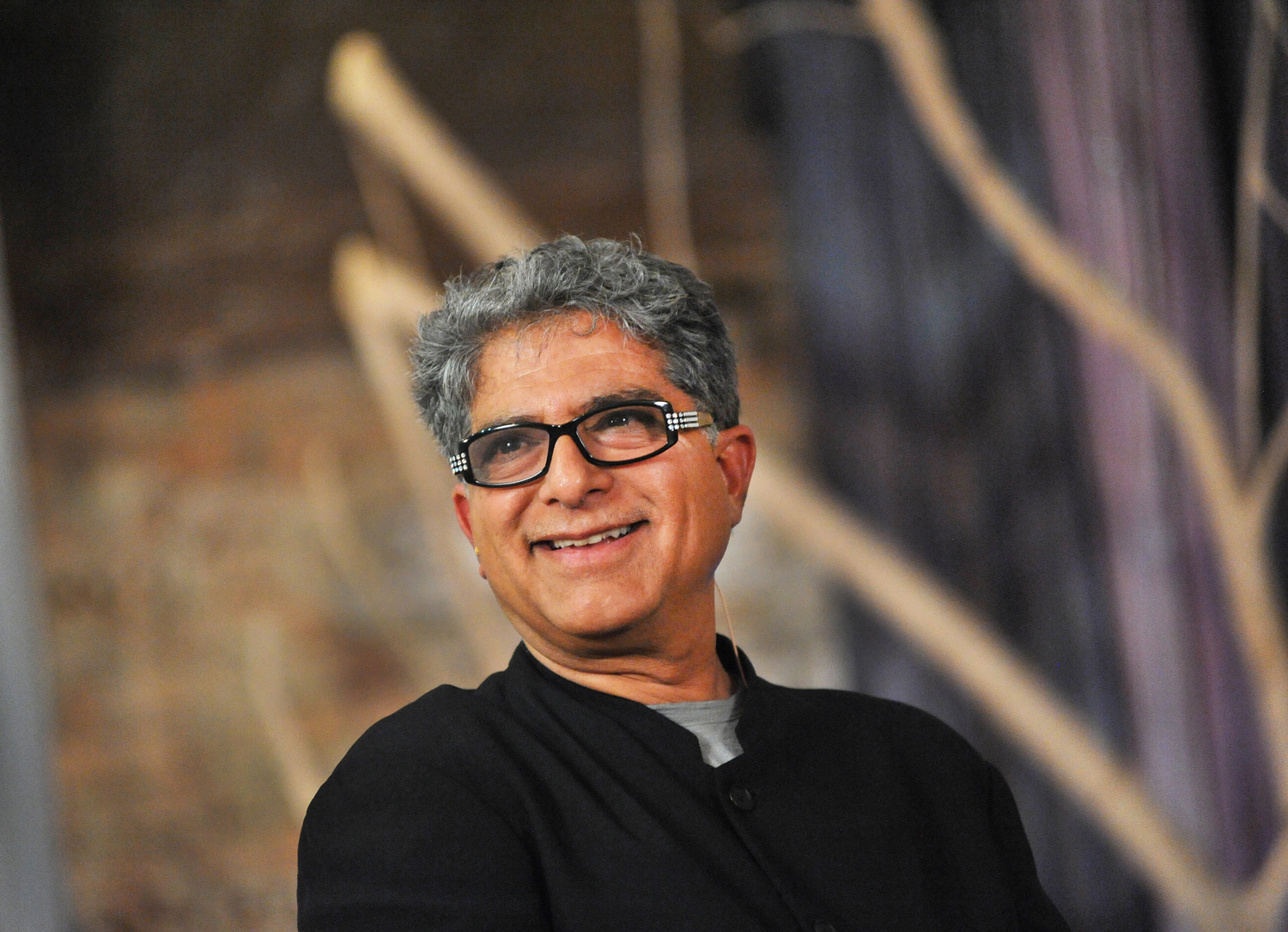Introduction to Deepak Chopra
Deepak Chopra is a renowned figure in the field of wellness and spirituality, celebrated for his contributions to meditation, holistic health, and the integration of mind-body practices. Born in India in 1946, Chopra trained as a physician before moving to the United States, where he began to explore the intersection of science and spirituality. Today, he is widely recognized as a pioneer in the field of alternative medicine and has authored over 85 books, many of which have become bestsellers, encompassing topics from meditation to personal growth and mindfulness.
Chopra’s approach combines various traditions, integrating aspects of Eastern wisdom with Western scientific principles. He emphasizes the importance of self-awareness, consciousness, and the transformative power of meditation in fostering personal and spiritual growth. His teachings often reflect the understanding that meditation is not a one-size-fits-all practice; rather, it involves exploring different techniques to find what resonates with the individual. This philosophy makes his work accessible to a wide audience, encouraging people to incorporate meditation into their daily routines.
Among his notable contributions, Chopra has developed several meditation programs that are rooted in both ancient practices and modern scientific research. His focus on mindfulness and the benefits of a consistent meditation practice has influenced countless individuals seeking to improve their mental well-being and overall quality of life. In particular, the inquiry into “what type of meditation does Deepak Chopra do” has garnered attention, as his varied techniques offer a framework for practitioners to explore their unique paths. Given his extensive body of work, Deepak Chopra remains a significant figure, inspiring a global audience to embrace the potential of meditation as a life-enhancing tool.
The Essence of Meditation
Meditation is a practice that has transcended cultures and epochs, with its roots deeply embedded in ancient spiritual traditions. At its core, meditation can be defined as a technique aimed at fostering a state of focused attention and awareness. Historically, meditation originated in the East, particularly within the realms of Hinduism and Buddhism, and it has since evolved into various forms that encompass a wide array of approaches and philosophies. These practices have been utilized for centuries to enhance personal growth, spiritual enlightenment, and overall well-being.
The essence of meditation lies in its ability to cultivate mental clarity and emotional stability. Regular practice can help individuals to mitigate stress, enhance concentration, and develop a more profound connection with themselves. Various styles of meditation—such as mindfulness, transcendental, and guided meditation—offer different pathways to achieving relaxation and insight. Each of these forms may resonate with practitioners in distinct ways, catering to their individual needs and preferences.
Deepak Chopra, a prominent figure in the realm of alternative medicine and holistic health, has contributed significantly to the understanding and popularization of meditation in the modern age. His approach often incorporates aspects of traditional disciplines while also emphasizing the importance of self-awareness and emotional well-being. Granulating this further, one may ask: what type of meditation does Deepak Chopra do? His practices typically blend elements of mindfulness and transcendental meditation, placing great emphasis on achieving a state of inner peace and clarity.
The psychological and physiological benefits of meditation cannot be overstated. Research indicates that consistent practice can lead to positive changes in brain structure and function, bolstering resilience against the stresses of daily life. Therefore, understanding the essence of meditation is vital as it lays the groundwork for exploring specific practices employed by notable figures like Deepak Chopra.
Deepak Chopra’s Meditation Philosophy
Deepak Chopra is renowned for his distinctive approach to meditation, which intricately blends ancient spiritual traditions with contemporary scientific insights. Central to his philosophy is the belief in the fundamental interconnectedness of mind, body, and spirit. According to Chopra, meditation is not merely a technique for relaxation; rather, it serves as a pathway to achieve a deeper understanding of oneself and the universe. This holistic view emphasizes the significance of the alignment between physical wellness, emotional stability, and spiritual fulfillment.
Chopra advocates that each individual possesses innate healing abilities that can be accessed through consistent meditation practice. He emphasizes the importance of self-awareness and mindfulness, teaching that by tuning into one’s inner self, individuals can facilitate profound changes in their overall well-being. This perspective aligns with the principles of what type of meditation does Deepak Chopra do, as he encourages practitioners to explore various meditative techniques tailored to their unique needs and experiences.
Moreover, Chopra incorporates contemporary scientific findings into his meditation techniques, offering empirical support to the benefits of mindfulness. His work often delves into how meditation positively affects brain function, emotional health, and physical conditions. By bridging the gap between science and spirituality, Chopra has made meditation more accessible and relevant to modern audiences. His belief that meditation can reduce stress, enhance mental clarity, and foster emotional resilience underscores the transformative power of these practices.
Ultimately, Chopra views meditation as a vital practice for anyone seeking balance and purpose in their lives. His teachings invite individuals to engage in self-discovery and personal growth, highlighting that through understanding what type of meditation does Deepak Chopra do, one can embark on a journey towards greater health and fulfillment.
Types of Meditation Practiced by Deepak Chopra
Deepak Chopra is well-known for his advocacy of a variety of meditation techniques, each offering distinct principles and benefits. A predominant form that Chopra emphasizes is Transcendental Meditation (TM), a practice that involves silently repeating a mantra to settle the mind into a state of profound rest. This type of meditation promotes psychological health, reduces stress, and enhances overall well-being. Research has shown that TM can lead to a greater sense of calm and increased clarity, making it a favorable option for those seeking to deepen their meditation practice.
In addition to TM, Chopra also supports Mindfulness Meditation. This approach focuses on being present in the moment and involves observing thoughts and feelings without judgment. Mindfulness meditation enhances self-awareness, reduces anxiety, and fosters emotional resilience. By incorporating this technique, practitioners can cultivate a non-reactive state of mind that is beneficial for daily life challenges. Chopra advises individuals to start with short periods of mindfulness practice and gradually increase duration as they become more comfortable.
Another technique endorsed by Chopra is Guided Visualization. This method involves following a guided narration that leads the individual through a series of calming images and sensations. Guided visualization is particularly effective for those seeking to evoke positive emotions or manifest specific goals. Chopra often uses this method to facilitate healing and personal growth, helping individuals align their intentions with their life paths.
Incorporating these various types of meditation into daily routines can significantly enhance one’s mental and emotional health. Each style, whether it be Transcendental Meditation, Mindfulness Meditation, or Guided Visualization, offers unique advantages that can cater to individual preferences and needs. Understanding what type of meditation Deepak Chopra practices can empower others to explore and engage with these transformative techniques in their own lives.
The Role of Mantras in Chopra’s Meditation
Deepak Chopra, a prominent figure in the realm of wellness and spirituality, emphasizes the integral role of mantras in his meditation practices. A mantra, in this context, is a specific sound, word, or phrase that is repeated to facilitate a form of focused meditation. Chopra advocates for the use of mantras as a means to enhance meditative experiences, promote relaxation, and foster spiritual growth. The selection of these mantras often depends on the individual’s personal journey, intentions, and aspirations. This customized approach is pivotal in facilitating the process of introspection and self-discovery.
The significance of mantras in meditation lies in their ability to create a vibrational frequency that resonates with one’s consciousness. Chopra explains that mantras can help transcend the analytical mind, allowing practitioners to connect with deeper aspects of awareness. By concentrating on a mantra, overwhelming thoughts can be set aside, leading to a state of heightened clarity and peace. This practice aligns with Chopra’s holistic approach; the repetition of mantras can elevate a person’s vibrational energies, making it easier to access higher states of consciousness.
Furthermore, the effects of mantras extend beyond the immediate experience of meditation. Frequent use can lead to profound transformations in one’s emotional and mental landscape. Many practitioners have reported a reduction in stress, anxiety, and negative thought patterns through the consistent practice of mantra-based meditation. As individuals internalize the vibrational essence of their chosen mantras, they may find that their overall spiritual growth is significantly enhanced. Understanding the roles these powerful tools play in here is essential for those who explore the question: what type of meditation does Deepak Chopra do? Through the intentional use of mantras, Chopra’s methodology offers a profound path to enlightenment.
Benefits of Deepak Chopra’s Meditation Techniques
Deepak Chopra is a widely recognized figure in the field of meditation and wellness, advocating for techniques that integrate mind, body, and spirit. The benefits derived from practicing the types of meditation that Deepak Chopra promotes are numerous and well-documented. Many studies underscore the positive psychological, emotional, and physical changes associated with these practices.
A significant benefit of Chopra’s meditation techniques lies in their ability to reduce stress. Research indicates that mindfulness meditation, similar to methods advocated by Chopra, significantly decreases stress hormone levels. In one study published in the journal Health Psychology, participants who practiced meditation reported lower levels of perceived stress and higher levels of emotional well-being. This suggests a strong correlation between Chopra’s approach to meditation and improved stress management.
Emotionally, Chopra’s meditation techniques have been shown to cultivate a greater sense of self-awareness and emotional resilience. Practitioners often report increased feelings of peace and improved emotional regulation. A meta-analysis in the journal Psychological Bulletin indicated that mindfulness meditation fosters emotional stability, enabling individuals to respond to challenges with a more balanced mindset. This aligns with Chopra’s teachings on creating harmony through inner stillness.
Furthermore, physical health benefits are also evident. Regular practice of Deepak Chopra’s meditation can lead to improved cardiovascular health, enhanced immune function, and even pain management. A review in the journal JAMA Internal Medicine highlighted that meditation can help alleviate symptoms of chronic pain and improve overall physical well-being. The holistic approach that Chopra emphasizes is instrumental in facilitating a comprehensive state of health.
Through these various dimensions of well-being—psychological, emotional, and physical—Chopra’s meditation techniques provide transformative benefits that have been supported by both scientific research and personal testimonials.
How to Get Started with Chopra’s Meditation
Incorporating Deepak Chopra’s meditation practices into your daily routine can be an enriching experience. To begin this journey, it is essential to create a conducive environment. Choose a quiet, comfortable space in your home where you can meditate without interruptions. This space should feel peaceful and inviting, encouraging you to return regularly. Consider incorporating elements such as cushions, candles, or soft lighting to enhance the atmosphere. A visually appealing and calm environment significantly contributes to a successful meditation experience.
Establishing a routine is another crucial step in adopting Chopra’s meditation practices. It may help to set aside a specific time each day dedicated to meditation. Consistency is vital, as it builds a habit and reinforces your commitment. Determine a time that works best for you, whether it be in the morning to start your day positively, during lunch to recharge, or in the evening to wind down. Start with a manageable duration of 10–15 minutes, gradually increasing as you become more comfortable with the practice.
To further support your journey, consider using resources that guide you through the types of meditation practiced by Deepak Chopra. There are numerous apps, books, and online classes available, many of which offer step-by-step instructions and guided sessions tailored to beginners. Audio recordings and video tutorials can introduce you to various techniques, including mindfulness and mantra-based meditation, both of which Chopra emphasizes. Engaging with a community or finding a meditation group can also provide inspiration and accountability as you explore the different meditation styles Deepak Chopra promotes.
By creating an inviting environment, establishing a consistent routine, and utilizing available resources, you can seamlessly integrate the meditation practices of Deepak Chopra into your daily life. This commitment can lead to profound personal growth and well-being.
Challenges and Common Misconceptions
Meditation is often perceived as a straightforward practice, yet many individuals encounter various challenges when attempting to incorporate it into their lives. One common misconception is that meditation requires a completely clear mind. In reality, experiencing thoughts and distractions is a natural part of the process. Deepak Chopra emphasizes that meditation, including the types he practices, involves acknowledging intruding thoughts without judgment rather than striving to eliminate them entirely. This understanding can help beginners feel more comfortable navigating their experiences.
Another frequent hurdle is the expectation of immediate results. Many individuals may try meditation for the first time and expect an instant transformation or profound insight. Meditation, as practiced by Chopra, is often described as a journey, requiring patience and commitment. Over time, consistent practice can lead to deeper self-awareness, emotional balance, and a heightened sense of connection with oneself and others.
Additionally, some people may feel discouraged due to physical discomfort experienced during meditation sessions. Posture can significantly impact one’s ability to meditate effectively. It is advisable to find a comfortable position that supports relaxation while keeping the mind alert. Implementing guided meditations, such as those offered by Deepak Chopra, can also assist in establishing a supportive practice without the pressure of having to do it perfectly.
Finally, there exists a misconception that meditation is only beneficial for certain types of individuals. In truth, the meditation practices promoted by Chopra are accessible to everyone, regardless of their background or beliefs. Meditation serves as a tool for various purposes, including stress reduction, emotional healing, and personal development. By debunking these myths and addressing the related challenges, potential meditators can approach the practice more openly and begin to explore its vast benefits.
Conclusion: Embracing Meditation for a Holistic Life
In today’s fast-paced world, the significance of meditation cannot be overstated. The practices of renowned figures like Deepak Chopra not only offer insight into achieving personal growth but also provide a pathway toward holistic well-being. By exploring what type of meditation Deepak Chopra does, we can understand how his techniques emphasize mindfulness, self-awareness, and emotional health. These components are essential for enhancing one’s overall quality of life.
Chopra’s approach often blends traditional meditation with modern scientific principles, promoting methods such as mindfulness meditation, loving-kindness, and self-reflection. His teachings encourage individuals to cultivate a deeper understanding of themselves, thereby fostering greater resilience against life’s challenges. This journey towards self-discovery and inner peace is accessible to everyone, regardless of their current lifestyle or mental state.
As this exploration into Deepak Chopra’s meditation techniques reveals, incorporating meditation into our daily routines can lead to profound transformations. The act of engaging in meditation serves as a powerful tool for managing stress and enhancing emotional clarity. It invites individuals to become present in their lives, creating a significant impact on both mental and physical health.
For anyone looking to take the next steps in their meditation practice, starting with small, manageable sessions can be beneficial. By gradually increasing the duration and frequency, individuals can build a consistent habit that nurtures their well-being over time. Embracing the lessons drawn from Chopra’s teachings may guide us toward a more mindful existence, promoting personal growth in various aspects of life.
Ultimately, exploring what type of meditation Deepak Chopra does and adopting these practices can lead to significant improvements in our quality of life, enabling us to thrive in our daily experiences.

We share information about current trends and stories of people all around the world.



